Yemen's Huthis Vow Major Response To Israeli Strike That Killed 6
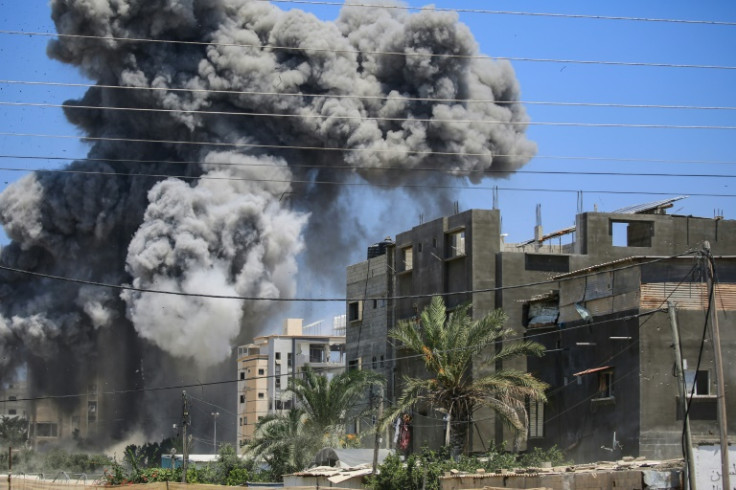
Yemen's Huthi rebels on Sunday promised a "huge" retaliation against Israel following a deadly strike on the port of Hodeida, as regional fallout widens from months of war in Gaza.
The Israeli strike, the first claimed by Israel in Yemen, came a day after the first fatal attack by the Huthis in Israel.
On Sunday Israel said it intercepted a missile fired from Yemen and struck targets in southern Lebanon. Residents of southern Gaza reported combat in the Rafah area.
The fighting across the region comes as Washington, Israel's chief military supplier, says a deal to end more than nine months of war between Israel and Palestinian militants Hamas is near the "goal line".
But Saudi Arabia's foreign ministry warned Israel's attack on Hodeida "aggravates the current tension in the region and halts the ongoing efforts to end the war in Gaza."
Dozens have been killed since Saturday across Gaza, the civil defence agency in the Hamas-run territory said, including in strikes on homes in the central Nuseirat and Bureij areas and near southern Khan Yunis.
On Sunday, Abdul Malik al-Huthi, chief of the Iran-backed group, said the strikes on Hodeida would lead to "further escalation and more attacks targeting Israel" after the deadly Huthi drone strike on Tel Aviv changed the rules of engagement and opened "a new phase" in operations.
Huthi military spokesperson Yahya Saree said earlier that the rebels' "response to the Israeli aggression against our country is inevitably coming and will be huge."
Israeli Defence Minister Yoav Gallant said the fire left raging by the strikes on rebel-held Hodeida port "is seen across the Middle East and the significance is clear."
Gallant warned of further operations if the Huthis "dare to attack us" after the Huthi drone strike hit Tel Aviv, at least 1,800 kilometres (1,119 miles) from Yemen.
It appeared to be the first to pierce Israel's intricate air defences. An analyst said Huthi drones do not pose a "strategic threat" to Israel.
The Huthis control swathes of Yemen, including much of its Red Sea coast.
In Hodeida, six people were killed and 83 wounded, health officials said in an updated statement carried by Huthi media.
Firefighters struggled to contain the massive blaze caused by the strike. A port employee said fuel storage tanks and a power plant were still burning on Sunday.
Analysts say the strike on Hodeida will likely only embolden the Huthis. Since January the rebels have already withstood repeated United States and British strikes aimed at deterring repeated Huthi attacks on shipping.
Nearly a decade of war against forces backing Yemen's internationally-recognised government has also failed to weaken the rebels' hold, even though they were hit by thousands of air raids.
Yemen expert Nicholas Brumfield said, however, that the Hodeida attack will have a "dire humanitarian" impact on ordinary Yemenis.
On Sunday, the Israeli military said it had intercepted a missile fired from Yemen towards the Red Sea resort town of Eilat. The rebel spokesman said ballistic missiles were fired towards the port.
In Lebanon, Iran-backed and Hamas allied Hezbollah said it fired Katyusha rockets at northern Israel after Israeli strikes hit a weapons depot and wounded six civilians.
Hezbollah said Israel's strikes on its Yemeni allies marked "a new, dangerous phase".
The Gaza war was triggered by Hamas's October 7 attack on southern Israel which resulted in the deaths of 1,195 people, mostly civilians, according to an AFP tally based on Israeli figures.
The militants also seized 251 hostages, 116 of whom are still in Gaza, including 42 the Israeli military says are dead.
Vowing to destroy Hamas, Israel has killed at least 38,983 people, also mostly civilians, according to data from the Gaza health ministry.
The war has left most of Gaza's population displaced, much of the infrastructure including housing destroyed, and essential goods in short supply.
Israel has started vaccinating its troops in Gaza against polio and supplying vaccines for the Palestinian population after health agencies said the virus has been found in the territory, the military said on Sunday.
Many more diseases are "spreading out of control" inside Gaza, a World Health Organization spokesman said on Friday.
The war has brought Israelis to the streets, sometimes in their tens of thousands, demanding a deal to free remaining hostages.
"Bring them home," demonstrator Ofira Azrieli said Saturday in Tel Aviv, appealing to Prime Minister Benjamin Netanyahu.
Netanyahu is due to address US lawmakers Wednesday in Washington, where he will be under pressure to reach a ceasefire with Hamas. He will meet President Joe Biden on Tuesday, his office said.
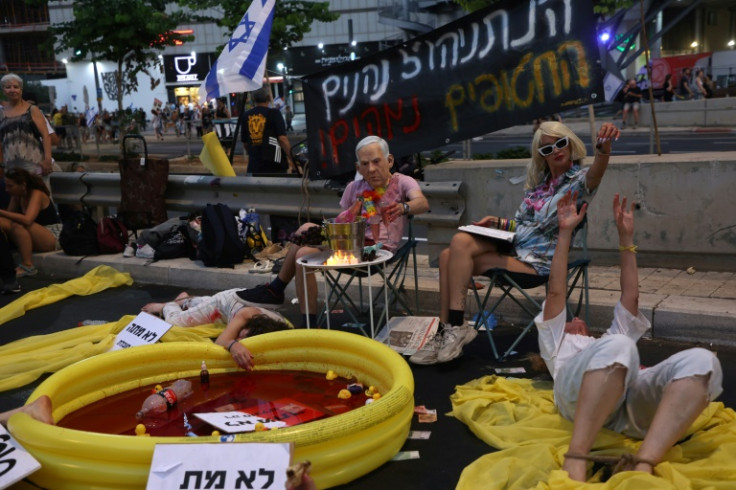
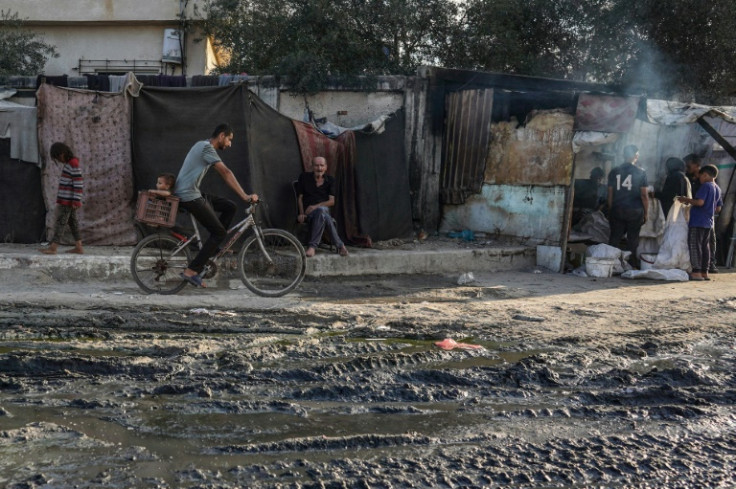

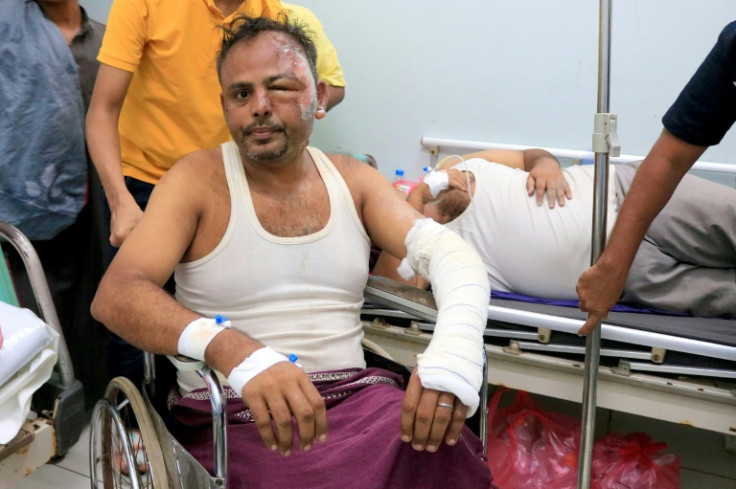
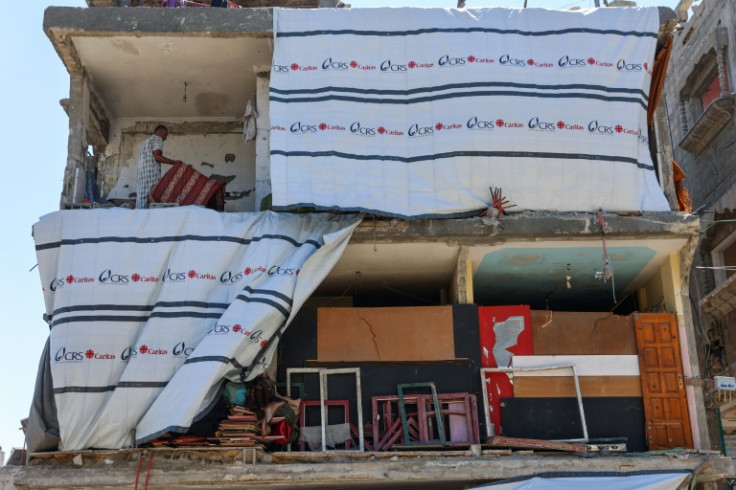
© Copyright AFP 2025. All rights reserved.




















